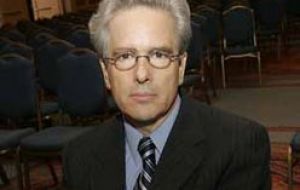MercoPress. South Atlantic News Agency
Brazil “minimizes” visit of top envoy from the Obama administration
 Valenzuela will have a tough week in his first visit to South America since nomination
Valenzuela will have a tough week in his first visit to South America since nomination Brazil and Bolivia reacted strongly to the US message to Latinamerica about “flirting” with the Iran regime. Brazil is “minimizing” the Monday visit of a top US Department official and Bolivia said that it is sovereign and practices a “dialogue culture” with all countries.
US Secretary of State Hillary Clinton last week warned Latinamerican countries “to think twice” about strategic alliances with Iran, which she described as the “world’s leading promoter and exporter of terrorism”.
Last month Iranian president Mahmud Ahmadinejad was on an official tour of Brazil, Bolivia and Venezuela. The US and Israel are fearful of the Teheran regime’s growing “infiltration” and “penetration” of Latinamerica.
On Monday recently nominated US Secretary Assistant of State for the Western Hemisphere Arturo Valenzuela begins in Brazil a tour of the four Mercosur full member countries (Uruguay, Argentina and Paraguay).
Under the heading “(Brazilian Chancellor) Celso Amorim minimizes the visit of Obama envoy” the influential Folha de Sao Paulo indicates that according to Brazilian diplomatic sources the (Hillary) decision “was seen as a message to United States”.
Valenzuela is to be received Monday by President Lula da Silva’s International Affairs advisor Marco Aurelio García and Deputy Foreign Affairs minister Antonio Patriota, but not by Foreign Affairs minister Celso Amorim.
According to the Brazilian press Washington was expecting Celso Amorim would receive Valenzuela but Itamaraty said hierarchy indicates that would be the case if Hillary Clinton was coming. Furthermore García is Lula da Silva’s contact man with all Latinamerican governments and will be managing beginning next February the October presidential campaign of cabinet chief Dilma Rousseff.
“It wasn’t a message for Brazil. And if it was, it was the wrong message”, said García quoted by Estado de Sao Paulo, which was his only official statement on the coming visit.
From Washington Valenzuela denied any misunderstandings with Brazil because of recent public differences between presidents Obama and Lula da Silva on the Honduras elections, Iran and the climate change summit in Copenhagen.
“We just have a few diverging views in some issues”, Valenzuela was quoted by Folha de Sao Paulo, which anticipates that Honduras and Iran are precisely the issues to be addressed when the US envoy arrives Monday.
President Lula da Silva openly supported Iran’s nuclear power development, for peaceful purposes, during the visit of President Ahmadinejad in November and Brazil did not back the UN vote condemning Iran for its nuclear plan. Last week during a visit to Germany Lula da Silva again publicly defended Iran’s right to develop nuclear power, for peaceful purposes.
Besides Brazil does not recognize the November 29th Honduran elections and last Thursday Celso Amorim claimed the US had been “extremely tolerant” with the coup and the de facto regime.
Amorim also revealed that Washington had approached Brazil to intervene as a link between the US and Iran to help persuade Teheran to cease nuclear development. “Isolation is a bad counsellor; keeping Iran isolated is a recipe for disaster, a disaster which could be even greater that the disaster of Iraq”.
From Bolivia president Evo Morales said the US does not have the “moral authority to talk about terrorism and point fingers to alleged promoters”. Morales said the US sends troops to other countries “to promote war or set up military bases as those in Colombia”, something in which Venezuela and Iran are not involved.
“Bolivia has relations with all countries in the world and we practice a dialogue culture” said Morales adding the US has a pending “shared responsibility” in the global war on drugs and that is “reducing the consumption of drugs in its own country instead of sending ‘warning message’ to other countries”.
Morales was re-elected a week ago with an overwhelming 63% of the vote.




Top Comments
Disclaimer & comment rulesCommenting for this story is now closed.
If you have a Facebook account, become a fan and comment on our Facebook Page!